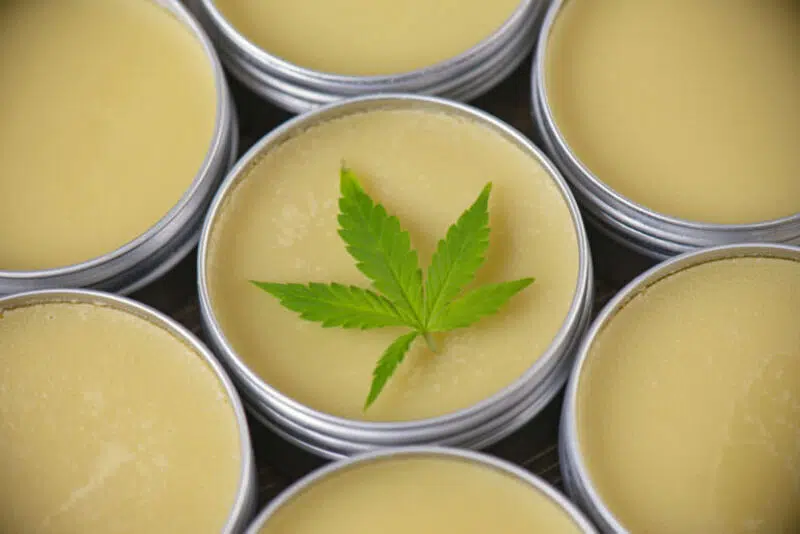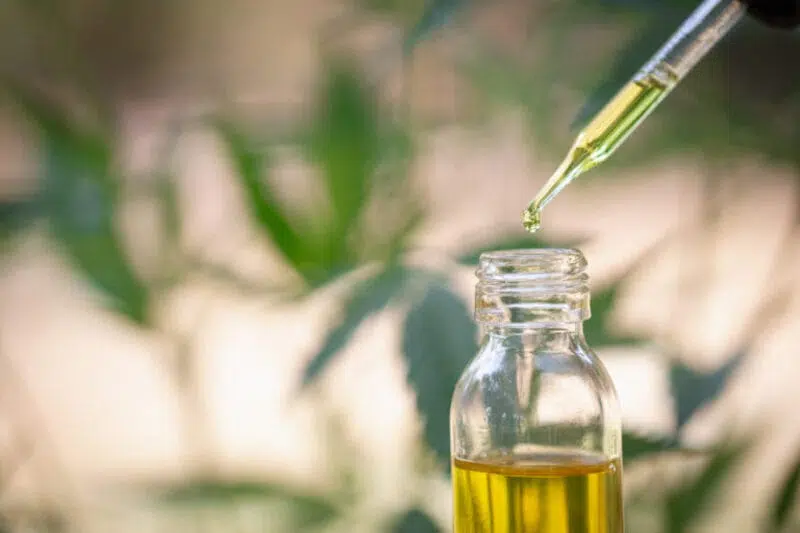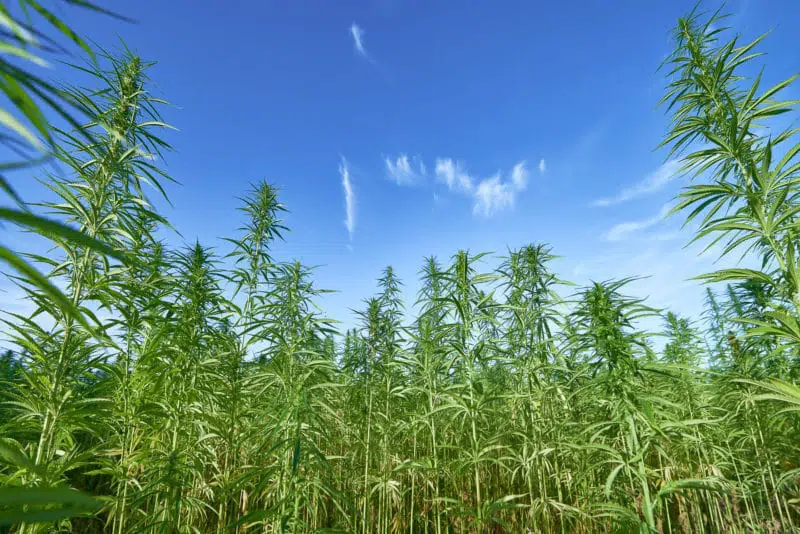-
- Market Research
- |
- CBD Near Me
- |
- Giveaways
- |
- Newsletter
- |
- Contact
- |
- Advertise
- |

Table of Contents
Here are the biggest stories from this week:
- Popular health and wellness company GNC introduces CBD products
- Texas House passes hemp farming bill
- Vermont proposes increase to THC limit in hemp
- New studies show CBD decreases THC high and reduces seizures in dogs
Table of Contents
- GNC Selling CBD Products
- Texas House Unanimously Passes Hemp Farming Bill
- Vermont Proposes Increase to THC Limit in Hemp, Adoption of CBD Grading Scale
- New Studies: CBD Decreases THC High and Reduces Seizures in Dogs
GNC Selling CBD Products
GNC, a popular global health company, announced Tuesday that it has introduced CBD products to its offering.
The products will all be CBD topicals, following the precedent set by other major retailers such as CVS, Walgreens, and Rite Aid.
Customers can find these products in stores and online in 23 states, as well as the District of Columbia.
The brands Physicians Grade and Myaderm will provide the CBD products.
Products from Physicians Grade include face cream, body lotion, scalp treatment, and shampoo. Products from Myaderm include their CBD Body Cream, Double Strength CBD Body Cream, and CBD Sport Cream.
“As the market changes, GNC is committed to offering high-quality, innovative products that are being introduced in new categories like CBD,” said Ken Martindale, chairman and CEO of GNC, in a statement. “We are excited to work with both companies to evolve our product mix and look forward to offering more CBD-infused beauty and skincare products in the future.”
GNC is one of the largest health and wellness brands in the country, with over 8,000 retail locations around the world in a span of 50 countries.
More than 6,000 of those locations are in the US.
In Q1 2019, GNC saw a sizable decrease in consolidated revenue from Q1 of 2018, which may have led to the timely announcement about selling CBD products.
Shares for GNC increased by 11.27% after the news broke.
GNC becomes the fifth notable supplement or drug store to start offering CBD products, following CVS, Walgreens, Rite Aid, and The Vitamin Shoppe.
Texas House Unanimously Passes Hemp Farming Bill
The Texas House unanimously passed a bill Wednesday that would legalize hemp farming in the state.
Rep. Tracy King (D-Batesville) introduced HB 1325, which will also legalize CBD and other hemp-derived extracts if passed.
“There’s no good reason for Texas farmers and ranchers not to have hemp as a crop option,” said Gene Hall, a spokesman for the Texas Farm Bureau, to the Texas Tribune. “I suspect a lot of farmers will choose this option once it’s available. It’s a drought-tolerant crop and can be grown anywhere where cropping is prevalent right now.”
The bill would give regulatory authority over hemp to the state’s department of agriculture.
Commissioner of the Texas DOA Sid Miller has already voiced strong support for the bill.
“You just watch, there is going to be more hemp grown than we could ever process,” said Miller in an interview with NBCDFW earlier this month.
Hemp has seen growing support in The Lone Star State this year.
Hemp was removed from the state’s controlled substances list after Commissioner John Hellerstedt of the Texas Department of Health Services signed an amendment on March 15, which took effect officially on April 5.
HB 1325 now goes to the Senate.
Vermont Proposes Increase to THC Limit in Hemp, Adoption of CBD Grading Scale
Vermont has proposed increasing the THC limit in hemp to one percent and adopting a CBD grading system.
The proposals come as Vermont is creating the state’s hemp regulations, which the USDA must approve before Vermont implements them.
Currently, the THC limit for hemp is 0.3%, which is the federal limit.
The increase would make all hemp genetics legal according to Dan Change, a co-founder of the CBD laboratory Kria Botanicals.
If this proposal is adopted, farmers would have more room for error when cultivating their hemp.
The proposal also includes the creation of a CBD grading scale, which is similar to the scale Vermont has in place for maple syrup.
The scale would signify the concentration of CBD in a given product:
- Grade AA is a hemp crop with a cannabidiol concentration greater than 14 percent
- Grade A is a hemp crop with a cannabidiol concentration between 14 percent and 12 percent
- Grade B is a hemp crop with a cannabidiol concentration between less than 12 percent and 10 percent
- Grade C is a hemp crop with a cannabidiol concentration between less than 10 percent and 8 percent
- A hemp crop with a cannabidiol concentration less than 8 percent is considered biomass
All hemp will be tested for potency and contaminants to be compliant.
These proposals will be subject to public comment before going to Vermont’s Interagency Committee on Administrative Rules for approval.
New Studies: CBD Decreases THC High and Reduces Seizures in Dogs
Two journals published new studies about CBD this week:
CBD Reduces THC High
A study by researchers from University College London found that CBD reduces the impairment caused by THC.
The “Journal of Psychopharmacology” published the study.
Researchers tested the impact of two different strains of cannabis on brain function.
One strain had 8 mg of THC, while the other strain had 8 mg of THC plus 10 mg of CBD.
The researchers monitored the posterior cingulate cortex, a part of the brain that seems to modulate human awareness, in 17 healthy volunteers after they consumed one of the cannabis strains.
The high-THC cannabis reduced functional connectivity (i.e., the connectivity between brain regions that have similar functions) in the posterior cingulate cortex, while the high-CBD cannabis saw a minimal reduction.
“Over the last two decades, rates of addiction and psychosis linked to cannabis have been on the rise, while at the same time stronger strains of cannabis with more THC and less CBD have become increasingly common,” reported the study.
“We have now found that CBD appears to buffer the user against some of the acute effects of THC on the brain.”
The ability of CBD to reduce the effects of THC is a popular notion.
However, an Australian study released earlier this year found that CBD may dose-dependently enhance the high caused by THC.
Despite this study, most evidence points to CBD reducing the impairment caused by THC via manipulation of CB1 receptors, the receptors which THC interact with to produce the high.
CBD Helps Dogs With Seizures
A Japanese study by researchers from the Yamazaki University of Animal Health found further evidence that CBD can help dogs suffering from epilepsy.
The study was published in “Pet Behavior Science,” an open access journal.
Researchers tested CBD oil on three dogs for eight weeks: a Labrador Retriever, Papillon, and Chihuahua.
The Labrador had two seizures during the treatment time, the Papillion had eight seizures, and the Chihuahua only had one.
The owners of the Labrador and Chihuahua believed CBD helped reduce the number of seizures, while the owner of the Papillon found no difference.
CBD also seemed to help the dogs with aggression and sleep.
The researchers concluded that “the seizure frequency improved considerably and owners reported a positive impression.”







